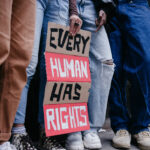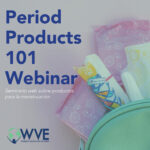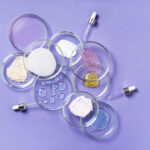Who’s Naughty and Who’s Nice?
How retailers respond to consumer demand for safe personal care products
For immediate release: Tuesday, December 11, 2012
Missoula, MT – When it comes to their commitment to cosmetics safety, some retailers are naughty and some are nice; some lead the market trend toward safer products and some lag behind. To get to the bottom of which stores consumers should support with their dollars as they shop for non-toxic stocking stuffers and which should get coal, today the Campaign for Safe Cosmetics released a report, Retailer Therapy: Ranking retailers on their commitment to cosmetics safety, putting a spotlight on Walmart, Target, Macy’s, CVS, Walgreens, Costco, Kroger and Whole Foods Market.
Women’s Voices for the Earth, co-founder of the national Campaign for Safe Cosmetics, conducted surveys at local Walgreens, CVS, Target and Walmart stores in Missoula.
“All women should have access to safer products, whether they shop at Whole Foods or at Walmart. But this report shows that’s not the case,” said Erin Switalski, executive director of Women’s Voices for the Earth. “We need regulations in place that put common sense limits on toxic chemicals, so that safer personal care products are available to women regardless of income or geography.”
Whole Foods Market is by far the leader, garnering nine out of a possible ten “kisses” in the ranking, because of its policy of screening out more than 400 chemicals of concern from its premium products; offering an extensive range of safer alternatives; and communicating its safety commitments and progress clearly to the public. At the other end of the spectrum, garnering only one kiss, is Macy’s, which stated that government regulations are adequate to address cosmetics safety and that it trusted its vendors to ensure the products the company sells are safe. The company has a very limited selection of safer alternatives, with some of its stores not offering any alternatives at all. CVS trailed Whole Foods with five kisses, followed by Walgreens and Target with four, and Walmart, Kroger and Costco with three.
“Retailers that sell personal care products are the gatekeepers of safety for their customers,” said Janet Nudelman of the Campaign for Safe Cosmetics and the Breast Cancer Fund. “If the nation’s biggest retailers commit to stop selling cosmetics with toxic chemicals linked to disease, manufacturers who want to keep selling to those retailers will comply. There is a rich history of retailers using their purchasing power to effect positive market change. When retailers said no to BPA in baby bottles or to old-growth lumber, the market responded.”
The $50 billion personal care product industry in the United States is largely unregulated, meaning products you buy at your local retailer—from baby shampoo to lipstick to moisturizers—can contain chemicals linked to cancer, birth defects, infertility and other chronic diseases.
This report provides vital information to consumers, including:
- which retailers screen the personal care products they sell for harmful chemicals
- which have addressed the safety of their private label brands
- which promote and expand the sale of safer alternatives; and
- which help customers understand their store’s commitment to health and safety.
The report reflects critical market trends, showing which retailers are responding to the growing demand for safer personal care products, which represent the fastest growing segment of the cosmetics market, which is expected to top $11 billion by 2016, due to rising consumer concern about hazardous chemicals in cosmetics.
The Campaign collected data for the report through direct communication with the companies, searches of their websites and corporate responsibility reports, and in-store shopper surveys conducted by volunteers from organizations in Alaska, California, Connecticut, Florida, Kentucky, Massachusetts, Michigan, Montana, Oregon and Pennsylvania.
###
Contact:
Cassidy Randall, (406) 543-3747, cassidyr@womensvoices.org
**Graphics available; Experts available for interviews**
Please contact Cassidy Randall at (406) 543-3747, cassidyr@womensvoices.org to arrange interviews with report authors, survey shoppers, cosmetics manufacturers, consumer advocates, Congressional champions for safe cosmetics, and others.
The Campaign for Safe Cosmetics is a national coalition of more than 175 nonprofit organizations working to protect the health of consumers and workers by eliminating dangerous chemicals from cosmetics. www.safecosmetics.org. Steering committee members include Women’s Voices for the Earth, Breast Cancer Fund, Clean Water Action, and Commonweal.





